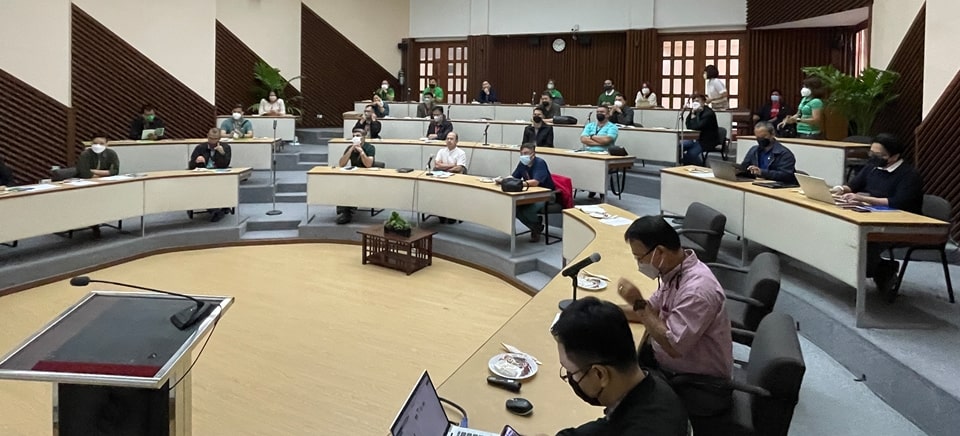 The National Defense College of the Philippines (NDCP) delegation together with SEARCA officials and staff during the briefing at the SEARCA Drilon Hall.
The National Defense College of the Philippines (NDCP) delegation together with SEARCA officials and staff during the briefing at the SEARCA Drilon Hall.
Seventeen students of the Master in National Security Administration (MNSA) at the National Defense College of the Philippines (NDCP) visited the Southeast Asian Regional Center for Graduate Study and Research in Agriculture (SEARCA) along with their professors and NDCP academic support staff led by Prof. Dr. Alan A. Lachica, Professor III, on 17 February 2022.
The students are composed of 11 military officers from the Philippine Army, Navy, and Air Force; two military officers from Indonesia and Pakistan; and four civilians from the Philippine government and the private sector.
The delegation is part of the 65 MNSA Regular Course 57 students from seven countries who were divided into groups that went to Regions 4A, 4B, 5, and 6 of the Philippines to conduct the National Security and Development Study (NSDS) during the academic field trips. The NSDS is integral to the MNSA course as it enables the students “to interact with key stakeholders and institutions and identify critical challenges and strategic prospects for development and national security.”
The NDCP group hosted by SEARCA focused on Region 4A and their field visit centered on “agricultural research and development programs and initiatives for innovative and sustainable agriculture industry” underscoring the importance of innovative and sustainable agriculture programs for food security.
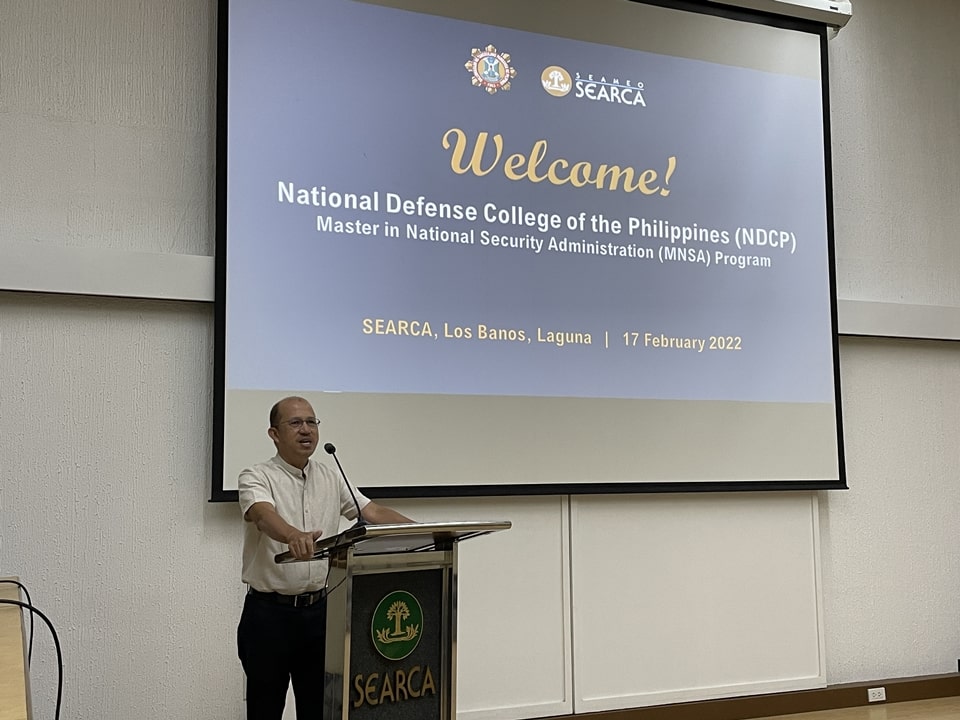 Dr. Glenn B. Gregorio, SEARCA Director
Dr. Glenn B. Gregorio, SEARCA Director
“If you have food security, you have national security,” Dr. Glenn B. Gregorio, SEARCA Director, told the NDCP delegation. He explained that they are intertwined and cited how rice sufficiency could contribute to national security.
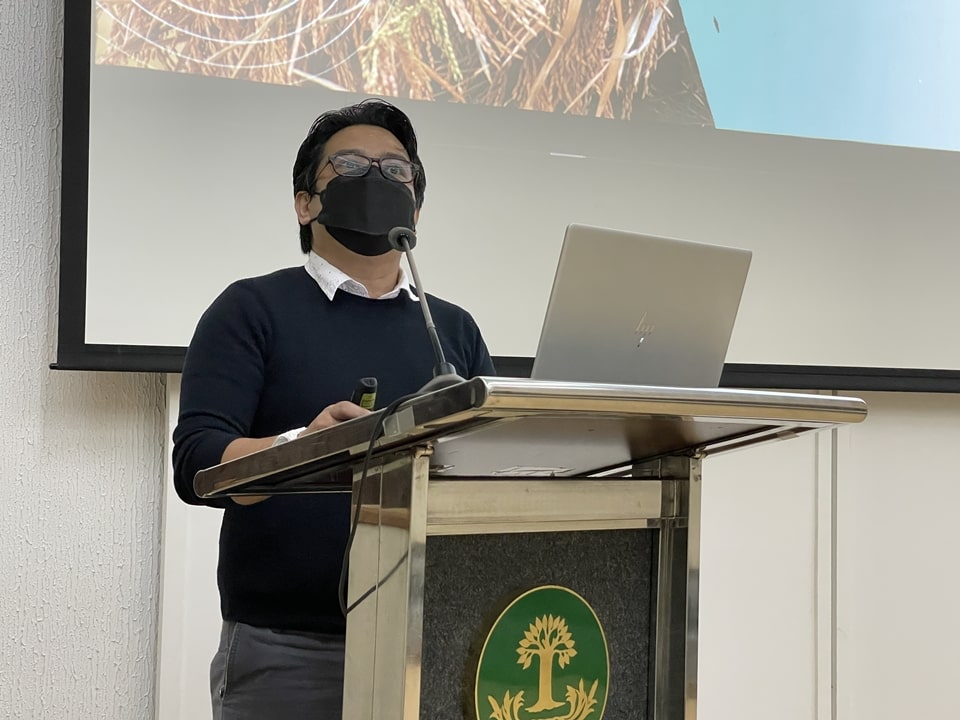 Dr. Pedcris M. Orencio, SEARCA Program Head for Research and Thought Leadership
Dr. Pedcris M. Orencio, SEARCA Program Head for Research and Thought Leadership
Dr. Pedcris M. Orencio, SEARCA Program Head for Research and Thought Leadership (RTL), and Mr. Glenn N. Baticados, SEARCA Program Head for Emerging Innovation for Growth (EIG), briefed the NDCP delegation on the Center’s RTL and EIG programs and activities. They responded to questions about opportunities for collaboration on social enterprises along the value chain, efforts on the ground to help farmers resilient to climate change, and additional information on some of the innovations presented.
When asked how SEARCA has bridged the gap between the knowledge from research and technologies it is pushing and the capacity and willingness of farmers to adopt these new ideas and tools, Dr. Orencio explained that SEARCA empowers the farmers with training, technical assistance, services for technology development and additional innovations together with partner institutions. Moreover, Mr. Baticados pointed out that SEARCA also tries to involve the whole farming family in the design of the technology or innovation that they want to implement in their community.
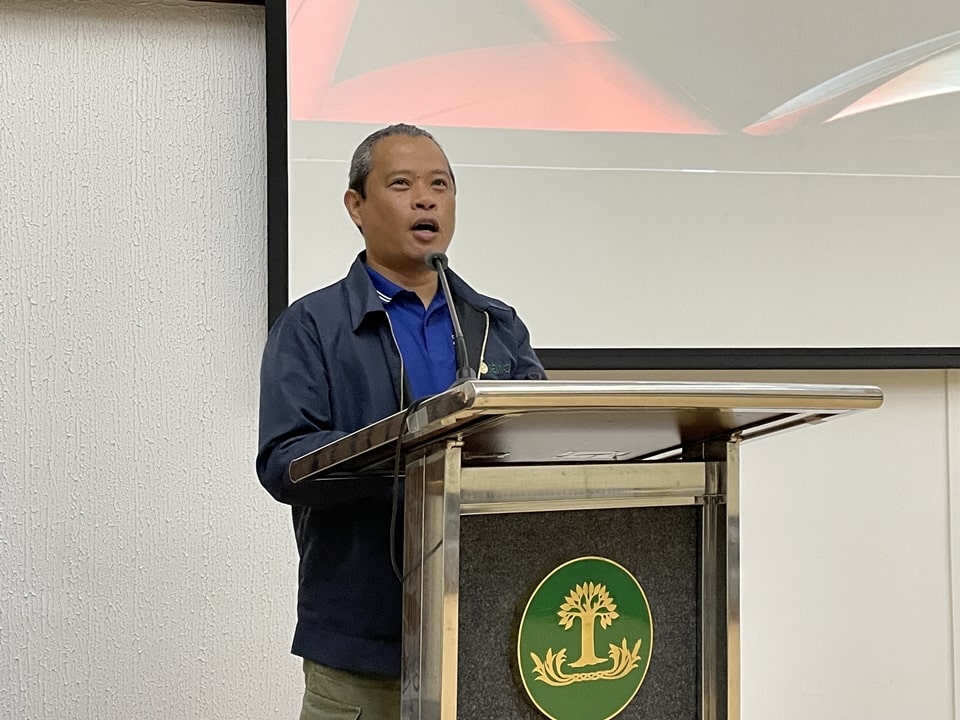 Mr. Glenn N. Baticados, SEARCA Program Head for Emerging Innovation and Growth
Mr. Glenn N. Baticados, SEARCA Program Head for Emerging Innovation and Growth
“You will be surprised that the farmers are really excited and they really wanted to be engaged. And seeing that they have that kind of ownership makes it easier for us to initiate adoption of new technology,” shared Mr. Baticados.
He added that SEARCA also tries to engage the farmers’ children because they need to understand that farming is not just hard work, that there is a lot of opportunities. Citing agriculture’s positive performance during the pandemic, he said at the end of the day, agriculture is the key to economic recovery.
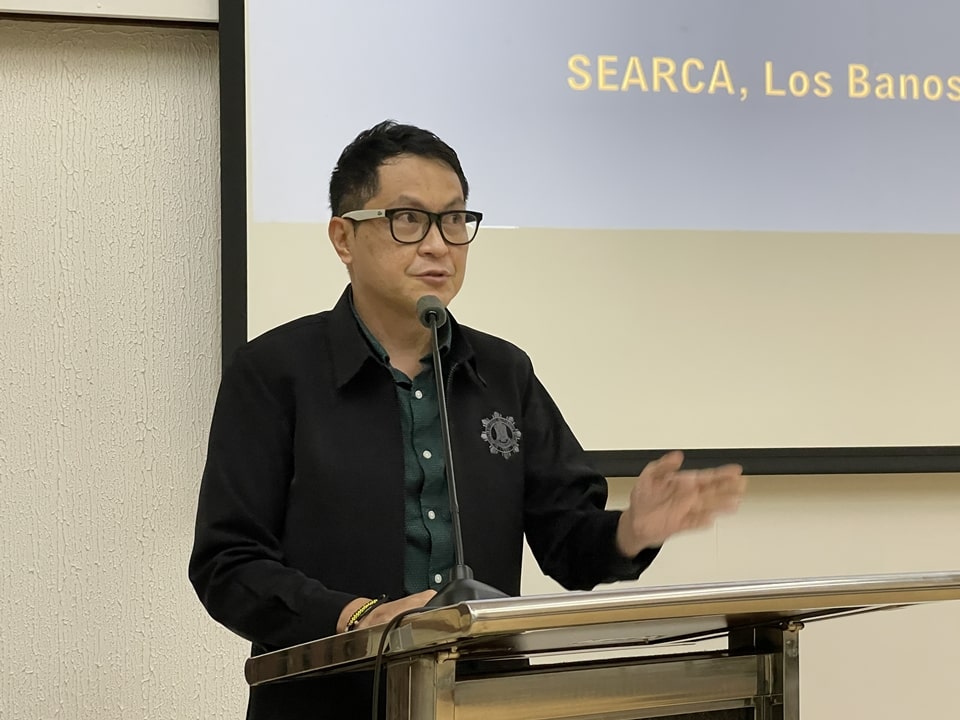 Prof. Dr. Alan A. Lachica, Professor III, NDCP
Prof. Dr. Alan A. Lachica, Professor III, NDCP
“The discussions that we had today about agriculture is not just an eye-opener again for us, but it also points us to the thinking how crucial agriculture really is not only to national security, but also global security,” said Dr. Lachica in his message.
He thanked SEARCA for the warm welcome and said, “the NDCP and SEARCA have shared a common characteristic: Both are graduate institutions tasked to develop and nurture future leaders in our respective fields of responsibilities—national security for NDCP and agriculture and rural development for SEARCA. But as I listened to your presentation today, one realization struck me: these students of NDCP, our focus is just one area—national security; what you are doing here is actually much higher than what we are doing, your calling is much more reverent and crucial than what we are doing. We are just focused on national security; you are focused on the security of humanity and to ensure that the future generations will be secure insofar as basic needs for life is concerned, which is food.”
After their briefing, the NDCP group also toured the SEARCA Hub for Agricultural and Rural Innovation for the Next Generation (SHARING), an interactive museum that is nearly fully operational.